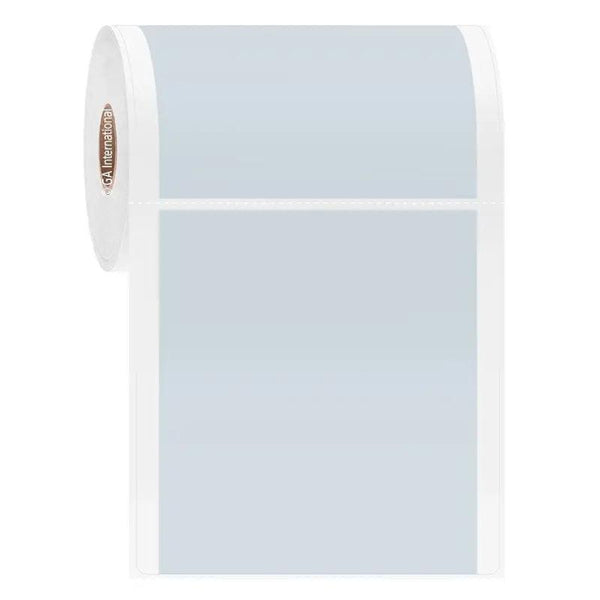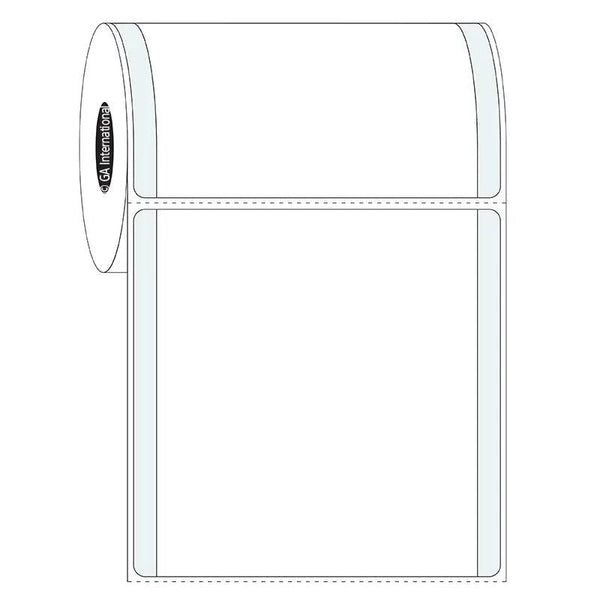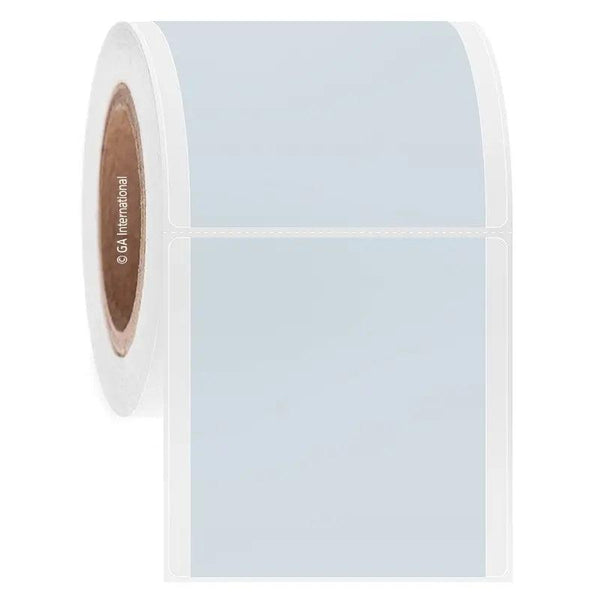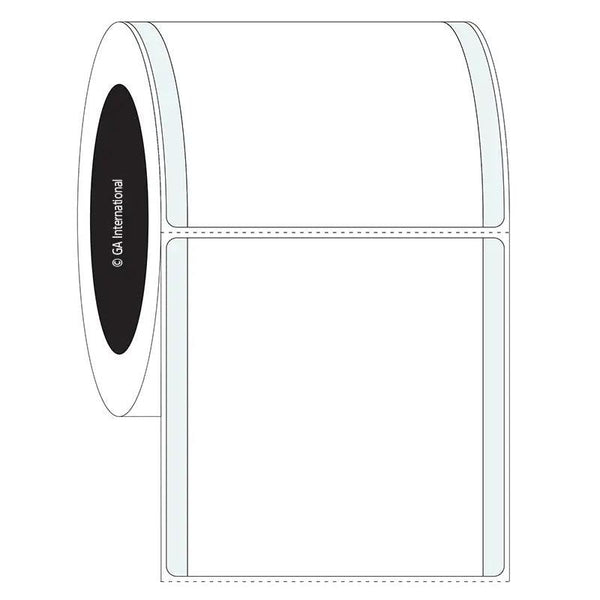
Cryogenic Cover-Up Labels for Frozen Tubes – 3.5″ x 4″
It is recommended that these CryoSTUCK®️ labels are applied with an overlap of at least 0.25” to ensure proper adherence.
Blackout CryoSTUCK®- Cryogenic Cover-Up Labels for Frozen Tubes
Printable Area: 3.5″ x 4″ / 88.9mm x 101.6mm
Total Label Size: 4″ x 4″ / 101.6mm x 101.6mm
Labels Across: 1
Color: Opaque white + clear
Labels/Roll: 250 (1″ core) or 500 (3″ core)
Core: 1″ or 3″ / 25mm or 76mm
Perforation: Yes
Adhesive: Permanent, can be used on frozen surfaces
Application Temperature: As low as -80°C (-112°F)
Temperature range: From -196°C to +100°C (-320.8°F to +212°F)
Recommended Ribbons: XAR-Class Solvent Resistant Ribbon
Cryogenic labels, with a clear overlap area, designed to be applied directly, and rapidly adhere, to frozen tubes which are difficult to label under deep-freeze conditions (-80°C / -112°F). Designed for long-term preservation in liquid nitrogen (-196°C / -320.8°F), -80°C (-112°F) freezers and dry ice, and can withstand temperatures up to +100°C (212°F). Labels can be printed with all common brands of thermal transfer printers to obtain a sharp, smudge-proof printout that is also resistant to most common laboratory chemicals and detergents. They can also be written on with our cryo-markers. On tubes, it is recommended that these CryoSTUCK® labels are applied with an overlap of at least 0.25” to ensure proper adherence to the frozen surface.
Benefits:
• The labels can adhere quickly to already frozen tubes (no thawing required)
• Ideal for long-term storage in cryogenic conditions (-196°C)
• Printable with all common thermal-transfer printer brands
Specifications
| Shipping Weight |
1 lbs 0.454 kg
|
|---|---|
| Core Size |
1", 3" 25.4 mm, 76.2 mm |
| Qty / UOM |
250, 500 |
| Width |
4″ 101.6 mm |
| Height |
4″ 101.6 mm |
| Printable Width |
3.5″ |
| Printable Height |
4″ |
| Labels Across |
1 |
| Tamper Evident |
No |
| Blackout |
Yes |
| Frozen Vials |
Yes |
| Wrap Around |
No |
| Product Uom |
Roll |
| Label Uom |
Label |
| Perforated |
Yes |
| Core Type |
Regular |
| Notch |
No |
| Black Mark |
No |
Frequently Asked Questions
Yes, thermal CryoSTUCK® labels require a thermal-transfer ribbon to achieve the proper printout. These cryo labels require a XAR ribbon of the same width or larger.
Yes, our unique CryoSTUCK labels are now available in sheet format, for printing with laser printers. For our Laser CryoSTUCK labels click here.
Yes, CryoSTUCK labels have been especially designed for the purpose of labeling already frozen vials and tubes. These cryogenic labels can be applied at -80°C/-112°F, eliminating the need to thaw valuable samples.
Yes, CryoSTUCK labels can be used to label samples prior to storing them in low-temperature freezers and liquid nitrogen tanks.
No, CryoSTUCK labels are coated with an extra-permanent adhesive, that is not made for easy removal. For removable cryogenic solutions see here.
Please consult our handy sizing guide where you will find recommendations for the most common vial/tube sizes.
Label design and barcoding software can be used to create templates that conform to the size of your label. You can then insert design elements within the template, for easy printing.
Yes, these blackout CryoSTUCK labels have a unique opaque design which allows them to conceal pre-existing labels. Perfect for covering-up obsolete information, while still being able to be applied on frozen surfaces.
No, if you want to reinforce an existing label, we offer clear CryoSTUCK labels that can be applied over an existing label while not concealing their printed information. These durable labels can thus add an extra layer of protection for your label.
For optimal adhesion, wipe away any visibly accumulated frost with a clean lint-free disposable wipe (e.g: KimWipe™). Apply the edge of the label first and press firmly to anchor it, while avoiding excessive contact with the adhesive. If you have a wrap-around CryoSTUCK, apply the printable area first. Then press the label securely into position along the vials’ entire circumference. Our thermal-transfer format CryoSTUCK® labels require an overlap of at least 0.25” to produce a secure adhesion to frozen vials and tubes.




